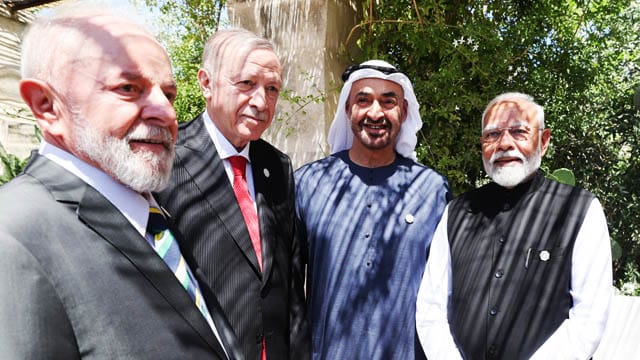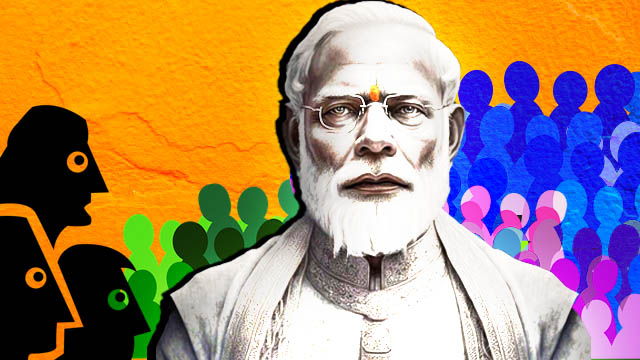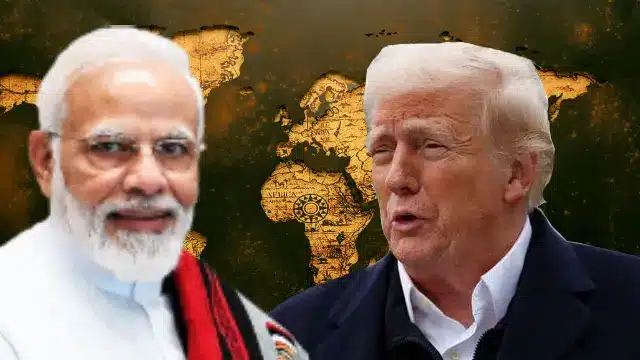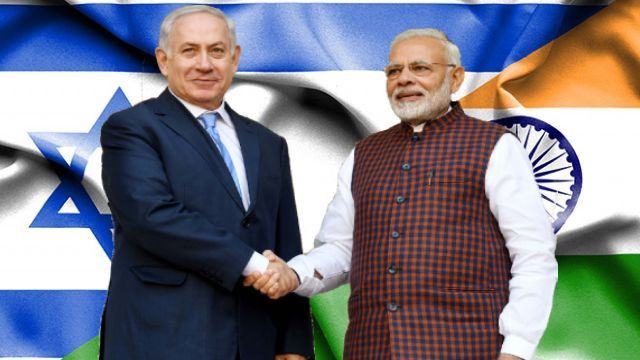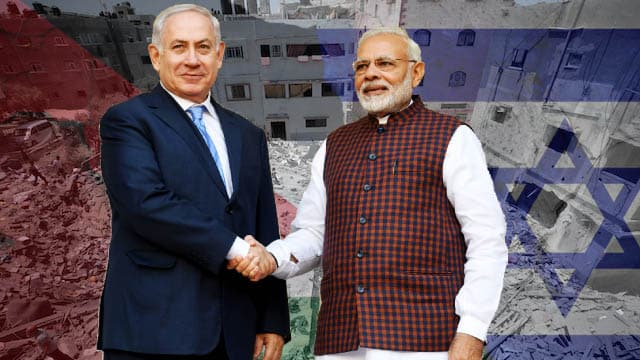Following Narendra Modi’s third consecutive inauguration as India’s prime minister, global attention is focused on the new government’s—called Modi 3.0—foreign policy. Initial indications suggest that Modi 3.0’s foreign policy will continue the previous term’s approach, balancing India’s ties with Russia and the West while addressing strategic challenges posed by regional rivals China and Pakistan.
G7 shows Modi 3.0’s foreign policy priorities
Soon after resuming office, Mr Modi travelled to the Apulia region in Italy, where his counterpart Georgia Meloni hosted the G-7 Summit.
Mr Modi’s participation in the G-7 Summit, which includes major western countries and Japan, of which India isn’t a member, highlights the new government’s intent to strengthen ties with the West while advocating for a multipolar world.
The India-Middle East-Europe-Economic Corridor (IMEC) project is one of Modi 3.0’s foreign policy priorities. Mooted by the US and its western allies during the G-20 Summit held in New Delhi in September 2023, the IMEC aims to connect India with Europe through the UAE, Saudi Arabia, Jordan, Israel/Egypt and finally Italy.
The IMEC is seen as an alternative to China’s Belt-Road Initiative (BRI), which India and the US have expressed their concerns about.
Although Italy had been a part of the BRI since 2019, in December 2023, after the IMEC was mooted, Ms Meloni’s government decided not to renew the memorandum of understanding (MoU).
Thus, Italy stepped out of the BRI and embraced IMEC.
To enhance India’s cooperation with the West, Modi 3.0’s foreign policy priority will be implementing the IMEC, whose feasibility, especially funding, has been questioned by experts in China and Russia.
Mr Modi’s visit to Italy isn’t merely due to India’s involvement in IMEC. Rather, it also highlights Modi 3.0’s foreign policy goals of strengthening bilateral ties with the G-7 member countries, including poll-bound Britain, France and the US, along with India’s Indo-Pacific war theatre ally Japan.
While the fag end of Mr Modi’s second tenure saw a souring relationship with Canada over India’s alleged role in shooting a Khalistani activist, which irked Prime Minister Justin Trudeau’s government, it’s to be seen if improving Indo-Canadian ties is anywhere on Modi 3.0’s foreign policy goals.
The Indo-Pacific war theatre
As China emerges as a significant competitor to the US and a global hub of innovation and manufacturing, the “Indo-Pacific region”, referred to by the Pentagon as a key strategic region, has become increasingly important in geopolitics.
As the US seeks to counter Beijing’s growing influence and build military alliances in this region, India has become a crucial player in this strategic landscape.
While India’s bilateral trade with China has been on the rise, year-on-year, despite their hostilities over British-era borders, New Delhi has been growing closer to the West with two clear goals.
Firstly, Mr Modi wants to market India as an alternative investment destination for the big foreign capital of the West, which is now working on a ‘China+ one’ model and looking at the markets of the Philippines, Vietnam, etc.
Although India’s technological capacities, human resource skills and infrastructure fall behind China on multiple counts, it’s trying to put a strong foot forward and be a part of the global manufacturing and semiconductor supply chain.
Secondly, to thwart any potential military pressure from China, New Delhi wants to use the backing of the US-led collective West’s military prowess.
This is why Mr Modi made India a part of the Quadrilateral Security Dialogue or the QUAD, an anti-China military axis consisting of Australia, India, Japan and the US.
Although India has refrained from mentioning that the QUAD is an anti-China military bloc, other powers like Australia, Japan and the US didn’t hesitate to mention it.
Since returning to power, Mr Modi has exhibited that his government will emphasise diplomatic manoeuvres in the Indo-Pacific region.
During and after his swearing-in ceremony it was clearly visible that his government has been trying to woo different leaders of the countries in the Indian Ocean region.
One can find how the Indo-Pacific will remain one of the core areas of Modi 3.0’s foreign policy priority from the list of the guests invited to Mr Modi’s swearing-in.
Except for China and Pakistan, Mr Modi has invited almost all leaders from the neighbouring countries.
Even Maldives President Mohamed Muizzu, whose pro-China stance has created hiccups in the India-Maldives relationship, was among those invited. So was Sri Lanka, over which India and China are having a geopolitical tango.
While India officially accepts the “One China Policy”, still Mr Modi, while responding to Taiwan’s secessionist president-designate Lai Ching-te’s greetings to his re-election, highlighted that his government “look forward to closer ties as we work towards mutually beneficial economic and technological partnership.
Mr Lai, in his greetings, highlighted that he looks forward to “enhancing the fast-growing” India-Taiwan partnership and expanding collaboration in trade, technology and other sectors.
As Taiwan is losing recognition globally as an “independent” state and even the US abides by the “One China Policy”, it must gain new partners.
However, for India, which has significant potential due to its young population, aligning with Taiwan—a non-state with a complex history and international recognition—against its powerful neighbour China, poses substantial risks and challenges to India’s development goals.
India-China rivalry in the region is a zero-sum game.
West Asia
While maintaining warm relations with Iran and Gulf monarchies, and supporting the two-state solution for Palestine, early indications show that Modi 3.0’s foreign policy priority in the region will be to strengthen ties with Israel.
Israeli Prime Minister Benjamin Netanyahu had a long telephone conversation with Mr Modi soon after the results of the Lok Sabha elections indicated his far-right coalition returning to power for the third term.
After the prime ministers exchanged greetings, India’s External Affairs Minister S Jaishankar had a long telephone call with his Israeli counterpart.
Mr Jaishankar’s tweet highlighting the conversation didn’t mention the situation in Gaza.
India has adopted a cautious approach towards the ongoing humanitarian crisis in Gaza.
It has avoided strong condemnation of Israel’s actions in Gaza and continues its partnership with Tel Aviv while offering periodic support to the Palestine cause.
On the one hand, India has been supporting Palestine’s statehood and advocating for more humanitarian aid passing through Rafah—emulating the US-led collective West’s standpoint—and on the other, it’s strengthening its ties with Israel.
It’s not just the IMEC for which India needs Israel, their partnership goes far deeper.
While India has been importing weapons from Israel for a long time, now it has started exporting military equipment, including drones, missiles and munitions to Israel, amid the ongoing Gaza genocide.
One such exporter is a joint venture owned by Gautam Adani, an Indian billionaire perceived to be closer to Mr Modi.
Some social media users have also shared tweets showing missiles allegedly made in India used in the Gaza genocide by Israel.
Reports like this suggest that India’s public sector defence industry has been supplying Israel with deadly munitions at a time when Gaza is reduced to rubble.
Early indications show that there will be little changes regarding Tel Aviv and Modi 3.0’s foreign policy priorities will weigh Israel more than Palestine or its West Asia allies.
In this case, India stands the risk of isolating itself from the Arab people and crucial energy partners on the one hand and, on the other hand, from the global south that has taken a radical stand concerning Israel.
In a nutshell, the initial days suggest that Modi 3.0’s foreign policy will be largely the continuation of the previous approach, with an increased emphasis on strengthening ties with the West.
Tanmoy Ibrahim is a journalist who writes extensively on geopolitics and political economy. During his two-decade-long career, he has written extensively on the economic aspects behind the rise of the ultra-right forces and communalism in India. A life-long student of the dynamic praxis of geopolitics, he emphasises the need for a multipolar world with multilateral ties for a peaceful future for all.

